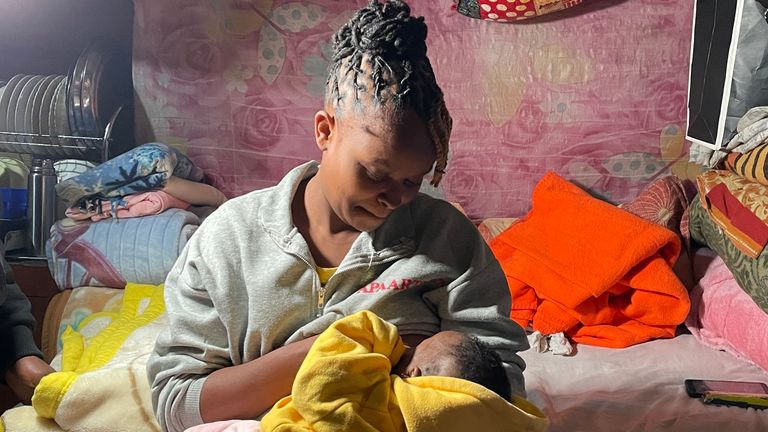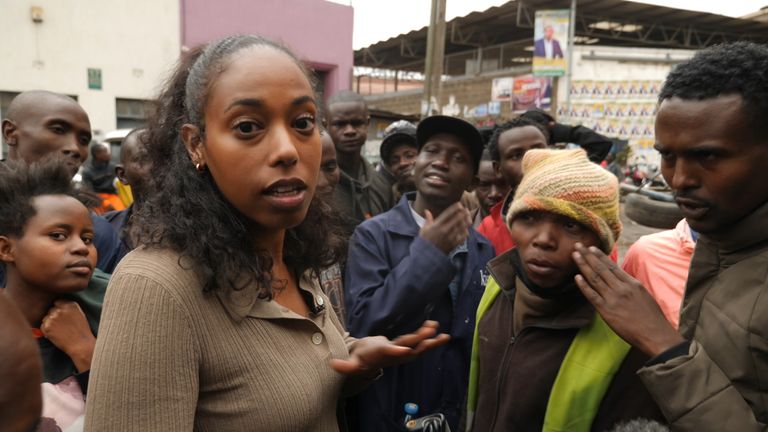Millions of Kenyans will be voting for their next president this Tuesday.
It’s a close race, with former prime minister Raila Odinga only six points ahead of deputy president William Ruto in the latest polls.
Fears are mounting that a contested outcome could trigger post-election violence amongst die-hard supporters of the two candidates.
Mr Odinga will be running for president for his fifth time on an anti-corruption and universal healthcare platform.
His opponent Mr Ruto is leaning into his self-made background and positioning himself as a voice for the “hustlers” – promising to tackle Kenya’s staggering 40% youth unemployment.
His source of wealth and mild stance on corruption has been a point of criticism.
Mr Odinga’s 77 years of age and elite background as the son of Kenya’s first vice president Jaramogi Odinga has been deemed by opponents as detached from the reality of everyday Kenyans – a reality that is steadily worsening as the cost of living crisis rises.
‘Today is bad, I don’t have money’
More than half of Nairobi’s population live in informal settlements.
Mukuru, one of the capital’s largest slums, has around 900,000 residents.
One of them is Ruth, a mother of three, who is struggling more than ever before.
Read more: Meet the Kenyan presidential candidate campaigning on marijuana and hyena testicles
“I can go to my boss and the boss tells me ‘today is bad, I don’t have money’ so I have to come back and look for another option, so I can feed my kids,” says Ruth.
Ruth’s bags are packed.
Like many people here, she’s planning to take her young children to the countryside until after the elections.
Her neighbour Jane Wanjiru is leaving too: “We are not sure what will happen. There is this tension all over.”
‘Only fools fight’
Concerns over a peaceful transition are rooted in a turbulent past.
Every general election in Kenya since 1997 has had incidents of electoral violence.
In 2007, more than 1,000 were killed and 600,000 displaced when the rival Kikiyu and Luo tribes both claimed victory.
Kenya is one of the largest economies in Africa and amongst the continent’s most influential nations.
What happens in next week’s elections will impact far beyond the country’s borders, and there is widespread hope that they will pass peacefully.
In a trendy student bar across town, young Nairobians gather for an open night mic hoping the sound system will drown out the doubt in the democratic process.
“What we ask is for people to be peaceful,” says 24-year-old Kadong Mwangi.
Back in Mukuru, heated political debate at a car wash ends in assurances from both sides of the race that they will accept the political outcome.
In a chorus of yells, one man says: “Why should we fight? We won’t fight – only fools fight.”























Discussion about this post